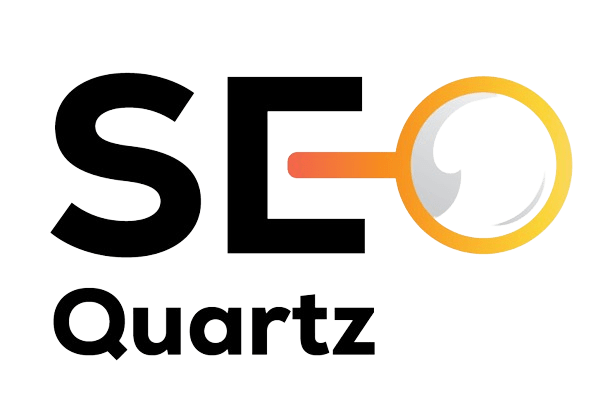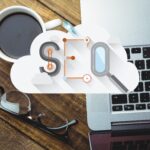How SEO Services Can Help Your Business Grow in 2026
What’s the Difference Between SEO, PPC, and Social Media Marketing?
In the digital age, getting found online is crucial—but with so many options like SEO, PPC, and social media marketing, it’s easy to feel overwhelmed. Which one should you choose? Do you need all three? And most importantly, what are the differences between them? Let’s break it all down with a clear, question-led guide so you can confidently decide what’s right for your business.
What Exactly Is SEO?
Search Engine Optimization (SEO) is the process of optimizing your website so it ranks higher on search engines like Google, Bing, or Yahoo—for free.
SEO focuses on organic (unpaid) traffic and includes:
- Optimizing page titles, headings, and keywords
- Creating high-quality, relevant content
- Building backlinks from trusted websites
- Improving site speed, mobile usability, and structure
If someone types “best plumber in Melbourne” and your website appears on page one organically—that’s the power of SEO.
How Does PPC Work?
Pay-Per-Click (PPC) advertising allows you to place paid ads on search engines and social platforms. You’re charged every time someone clicks your ad.
PPC includes platforms like:
- Google Ads (search and display)
- Bing Ads
- YouTube Ads
- Facebook/Instagram Ads (if paying for traffic)
- LinkedIn Ads
You choose the keywords or audience, set your budget, write the ad, and go live—instantly attracting traffic.
So, if you want immediate results, PPC is your go-to strategy.
What Is Social Media Marketing?
Social media marketing involves promoting your brand, content, or services through platforms like:
- Twitter (X)
- TikTok
It can be organic (free posts, stories, engagement) or paid (boosted posts and sponsored ads).
The goal? Build brand awareness, foster relationships, and drive traffic or conversions over time.
Which One Is Best for Long-Term Growth?
If you’re thinking long term, SEO is the most sustainable strategy.
While it takes time (typically 3–6 months to see results), once you rank high on Google, you generate free traffic consistently. It’s perfect for:
- Evergreen content
- Local business pages
- Blogs and service pages
SEO is especially ideal for companies like ours—SEO Quartz—that want to rank for valuable, high-intent searches like “SEO services in Melbourne” or “SEO company in Florida”.
Can PPC Deliver Immediate Results?
Absolutely. PPC is ideal if:
- You just launched a website
- You’re running a limited-time promotion
- You want instant visibility
- You’re entering a highly competitive market
The advantage is speed—you can go live within hours. The downside? You stop getting traffic the moment you stop paying. Still, with proper targeting and budget control, PPC can generate leads and sales almost instantly.
Is Social Media Just for Branding?
Not at all. While it’s fantastic for brand building, social media marketing also drives measurable results when done right.
For example:
- Instagram can promote a new product
- LinkedIn can attract B2B leads
- Facebook ads can generate website visits
- TikTok can build rapid audience engagement
The trick is to use each platform based on your audience behavior. You don’t need to be everywhere—just where your customers are most active.
Which Channel Builds the Most Trust?
SEO often builds the most trust because users see your website ranked organically—they don’t assume you “paid” to be there. Google’s top results are perceived as authoritative, especially when backed by content, reviews, and solid backlinks. However, a strong social media presence also builds trust through real-time interactions, community engagement, and user-generated content.
Is One Channel Cheaper Than the Others?
Yes—and no.
- SEO is cost-effective over time but may require upfront investment in content and optimization.
- PPC requires ongoing spending, and costs can add up fast—especially for competitive keywords.
- Social media can be free (organic posts), but scaling often requires paid promotion or creative assets.
So, SEO is cheapest in the long run, PPC is best for short-term goals, and social media can offer flexible options depending on your approach.
Should I Use All Three at the Same Time?
Yes—if your budget and team can handle it. These channels work best together:
- Use SEO to build long-term traffic
- Use PPC to generate instant leads or sales
- Use social media to nurture and engage your audience
This creates a well-rounded funnel. Someone might see your brand on Instagram, click a Google Ad later, and eventually find your blog through SEO. It’s all part of a connected strategy.
What’s the Right Mix for a Small Business?
Here’s a practical breakdown:
- New business or startup? Start with Google Ads (PPC) + Instagram for brand visibility
- Local service provider? Focus on local SEO + Google Maps + Facebook presence
- E-commerce brand? Invest in SEO for product categories, PPC for retargeting, and social for reviews & user content
- B2B company? Use SEO + LinkedIn ads + content marketing
Need help tailoring a strategy? At SEO Quartz, we help brands identify which mix of SEO, PPC, and social media will get the fastest and most sustainable ROI.
How Can I Measure Results from Each?
Great question. Here’s what to track:
- SEO: Organic traffic, keyword rankings, bounce rate, backlinks, conversions
- PPC: Click-through rate (CTR), cost-per-click (CPC), conversions, return on ad spend (ROAS)
- Social Media: Engagement rate, reach, followers growth, shares, website clicks
Most importantly—don’t rely on vanity metrics. Track leads, conversions, and revenue.
For a detailed guide, check out our blog: How to Measure the ROI of SEO Services
How Do I Know Which Channel Fits My Goals?
Ask yourself:
- Do I need traffic now or can I wait?
- Do I have more time or money to invest?
- Is my audience actively using social media or search engines?
- Am I launching something short-term or building a brand?
If you’re still unsure, consulting a trusted digital marketing agency like SEO Quartz can help clarify your direction.
We’ll audit your current efforts, assess your goals, and recommend the most effective channel(s)—whether that’s SEO, PPC, social, or all three.
Final Thoughts: Which One Should You Choose?
There’s no universal answer. But here’s a quick cheat sheet:
| Channel | Strength | Best For |
| SEO | Long-term traffic | Evergreen content, local businesses |
| PPC | Immediate results | New product launches, sales funnels |
| Social Media | Engagement + brand building | Community growth, B2C interaction |
The smartest brands use a strategic combination of all three to cover all stages of the buyer’s journey—from awareness to conversion.
At SEO Quartz, we help businesses like yours create the perfect digital mix based on your goals, industry, and audience. Whether you’re aiming for top Google rankings, launching a new product, or building a social community—we’ll craft a strategy that drives real, measurable results. Need help deciding where to start? Get in touch with the experts at SEO Quartz for a personalized digital marketing consultation today.
Frequently Asked Questions (FAQs)
Which is better—SEO, PPC, or social media marketing?
There’s no one-size-fits-all answer. SEO is best for long-term growth, PPC offers immediate results, and social media marketing builds brand awareness and engagement. The ideal choice depends on your goals, industry, and budget.
How long does SEO take compared to PPC?
SEO typically takes 3 to 6 months to show significant results, but it delivers lasting traffic once you rank. PPC provides instant visibility—but only as long as you keep paying.
Is social media marketing necessary for every business?
Not necessarily. It depends on where your audience spends their time. B2C brands benefit more from platforms like Instagram or Facebook, while B2B brands may focus on LinkedIn. A digital marketing agency can help identify the best platforms for you.
Can SEO and PPC work together?
Absolutely! Running SEO and PPC campaigns together allows you to dominate both paid and organic search results, increasing your visibility and improving click-through rates. It also gives you more data for optimization.
Do I need a big budget to get started with digital marketing?
No. You can start small and scale up. Many businesses begin with basic SEO, low-budget PPC, or organic social media posting. Over time, as you see ROI, you can invest more confidently.
 info@seoquartz.co
info@seoquartz.co
 +1 (276) 739-9962
+1 (276) 739-9962











